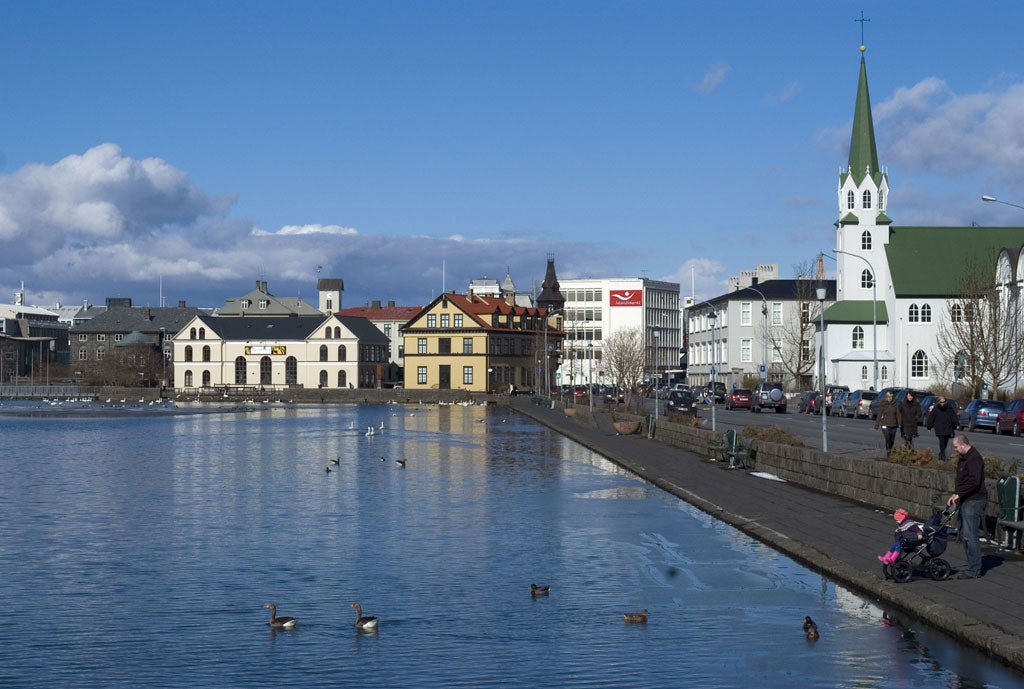Simon Calder: How to turn the air tax rise to your advantage
The man who pays his way

Keep your friends close, but keep your enemies closer: so goes the first rule of politics. And on Thursday, it also applied to the airline business. Four chief executives whose airlines between them carry almost 200 million people each year lined up at a City press conference to berate the Chancellor for his plans to increase Air Passenger Duty next year.
In a first for the industry, the the quartet – Carolyn McCall of easyJet, Willie Walsh of British Airways, Steve Ridgway of Virgin Atlantic and Michael O'Leary of Ryanair – shared a platform to demand that George Osborne scrap APD, the tax of £12 to £170 that applies to every flight from or within the UK.
The Chancellor is about as likely to do that as he is to announce that the British currency will henceforth be the acorn. His colleague, the Culture Secretary, Jeremy Hunt, is the minister ultimately responsible for tourism. I asked him if the government would consider at least postponing the 2012 increase. He told me: "We're having to take some very tough measures to cut the deficit. So this is not the time to be going to the Treasury and saying could they introduce measures that would cost the Exchequer money. I'm afraid that's tough, but that's how it is."
The airline bosses know the Chancellor has done his sums ahead of the Autumn Statement on 29 November, and is counting on the £2.5bn APD will raise. But they are playing a longer game.
By staging this remarkable production of "Much ado about aviation", they aim to stem further increases. And next time an airline puts up fares or axes an unprofitable route, they hope the travelling public will join them in blaming Mr Osborne.
Within Europe and the Mediterranean, travellers should adopt the brace position for a rise from £12 to £15 or £16. There could be simplification of the banding structure so that long-haul passengers pay a flat rate of around £75 – or twice that amount for business class. (It's possible that premium-economy passengers may get a tax break; at present APD doubles as soon as you opt for extra legroom.) And for the first time, executive jets will be taxed, at a rate of £150 to £200 per passenger.
Happily, it is easy to reduce your exposure to APD, by breaking your journey for at least 24 hours in a European city.
Should you be tempted into a New Year visit to Uruguay by our story on pages 8-9, Iberia will charge you just over £1,000 return in mid-January. Add in a city break in Madrid and, on the days I checked, the fare falls by 12 per cent. Or if 48 hours in Boston (pages 12-13) inspires you, get George Osborne to pay for 24 hours in Reykjavik by breaking your Glasgow-Boston journey in the Icelandic capital.
For the former USSR, the only way is Riga. The tour leader, Neil Taylor, is planning a series of group excursions to Georgia next year. Flying on Air Baltic, he can offer his clients a day out in the Latvian capital entirely funded by the saving in APD.
The most galling aspect of the inevitable APD rise: even though it will take effect in April, the tax will effectively be backdated for everyone who has already booked. It's as though you fill the petrol tank of your car before a Budget tax hike – and then get asked to pay extra for every mile you drive after the price rise.
The fine art of diplomacy, Ryanair style
An overbooking? A confrontation? Or a grumble? Surely one of those must be the collective noun for a quartet of gloomy airline bosses.
The uneasiness of the ceasefire became clear when Michael O'Leary declared of his fellow countryman, Willie Walsh, "I think BA's fares are too high, he thinks Ryanair's service is too low."
While the refined Carolyn McCall of easyJet and Steve Ridgway of Virgin Atlantic used measured language in their message to the Chancellor, Mr O'Leary said of Mr Osborne, "He lacks courage and he lacks balls". At least the Ryanair chief was at the other end of the table from his bitter rival, Ms McCall. Should you happen to invite the bosses of Europe's and Britain's largest airlines to dinner, you might also choose to seat them apart: the last time I heard him opine on her airline, he said "For those of you who want to get to the arse end of nowhere, easyJet will now take you to Southend."
travel@independent.co.uk
Subscribe to Independent Premium to bookmark this article
Want to bookmark your favourite articles and stories to read or reference later? Start your Independent Premium subscription today.

Join our commenting forum
Join thought-provoking conversations, follow other Independent readers and see their replies